Dinner with My Father
30 november 1992 I wonder what it would be like to go to dinner with my father. One of the chief words my uncle uses to describe my father is "classy," so I'm sure that he would take me to a fancy restaurant. We would sit across the table from each other, both decked out in dark suits. My hair would fall into my eyes and I would brush it out of the way, looking to see the expression on his face.He was a large man, both in my memories and in photographs I've seen. I'm sure that he would dominate the conversation, both physically and mentally. His absence from my life has resulted in my sort of revering him, and so I think that the evening would be unevenly balanced toward my listening to him speak. And what better questions to ask than his opinions of me and my habits? It would be strange, seeking acceptance from someone who has had such a powerful effect on my life, influencing me more through his absence than through his presence.
My early years with my father have become harder and harder to recall. From what I can remember, and what I have gleaned from my brother and mother, I was on the verge of spending "quality time" with my father. My brother, who is four years older than I, spent the last few years with Dad talking and reading and walking, all things I yearn to have done with him. The dinner would be a chance for me to bond with my father, and to get a sense of the man he was. This is what my brother and my mother know, but cannot convey to me.
I would show him some of the poems I've written about him and me. I would question him to see whether or not the image of him I had forged in my mind, in my writing, is true. In my philosophy class this year, we are reading Plato's Republic, which my mother has told me was my father's favourite book. I am fortunate enough to have his copy of the Republic, a tattered, red-leather bound copy from long ago. I want to know what he gleaned from this book that made it so important to him. I would use the dinner (which I know would be too short) to fill in the gaps in my perception of my father. I would probe him to see who he was, and what he felt.
I think I would tell him about the self-searching I have done in connection with his death. I would ask him if he loved me, if there was anything I could have done to prevent him from killing himself.
Although I spent the first eight years of my life in the same house with my father, I have now lived longer without him. I am really my own person, in many ways more shaped by the struggles with my stepfather and my mother than anything I went through with him. What he left me genetically, and in the first eight years of my life I could probably guess at, but I think it would be clear that his death affected me more than anything he ever did with me while he was alive. I wonder what his reaction to that would be, what his reaction would be to Justin Hall.
I have just recently begun to play chess again. My father and I played infrequently while he was alive. I remember that the last time we played, right before he died, I beat him. I, a little eight-year old, checkmated my father, who seemed to me the ultimate chess master. He was as flabbergasted as I was. Though my sense of the joy of that event has been dampened somewhat by the realization that alcoholism had deteriorated his mind and thus hampered his ability to be an effective opponent, I would not play chess for many years after that, my attempt to sanctify that last game. Now I think that game is important, not just because it showed me that I could defeat my father. I think it may have helped me understand that I could be my own individual, and take something that he had taught me and build on it. In my brighter moments, I hope that this symbolizes that I will be a happier person than he must have been.
poetry | writings | dad | life
justin's links by justin hall: contact